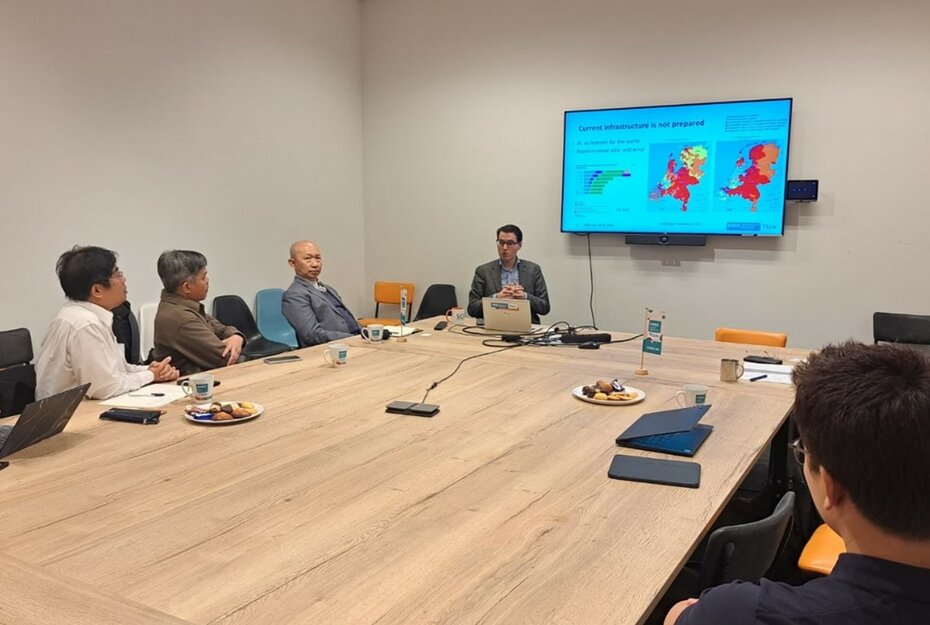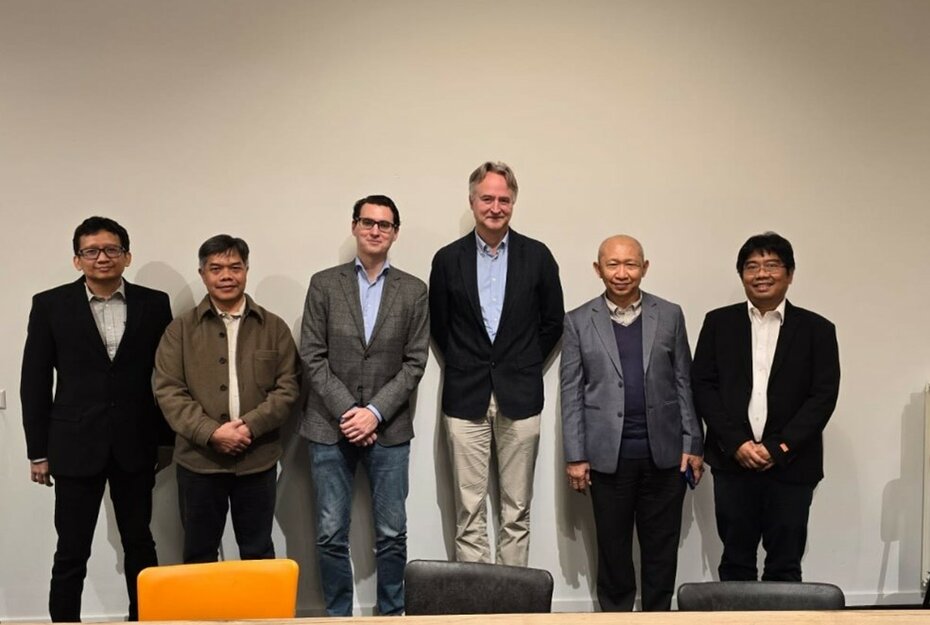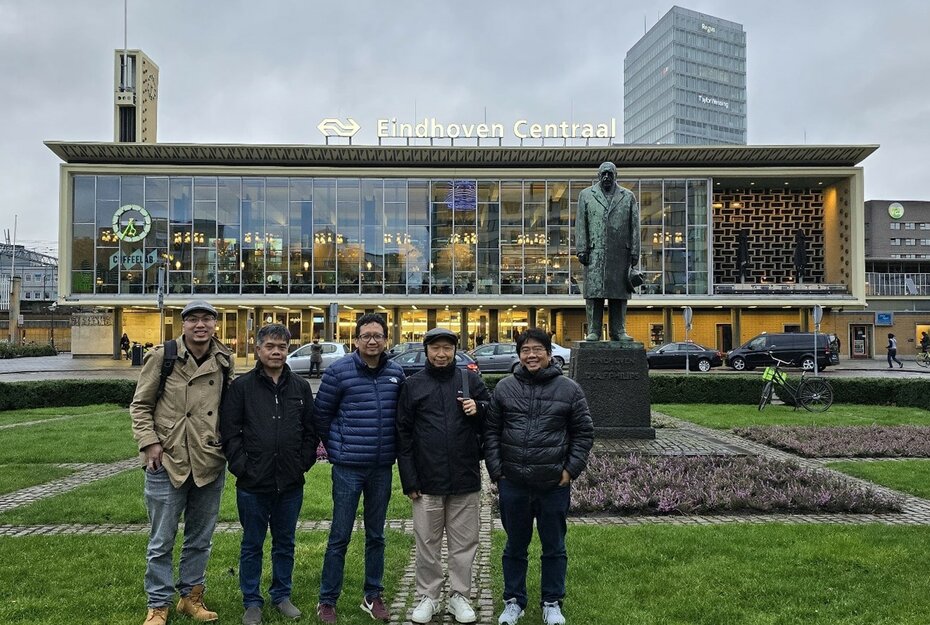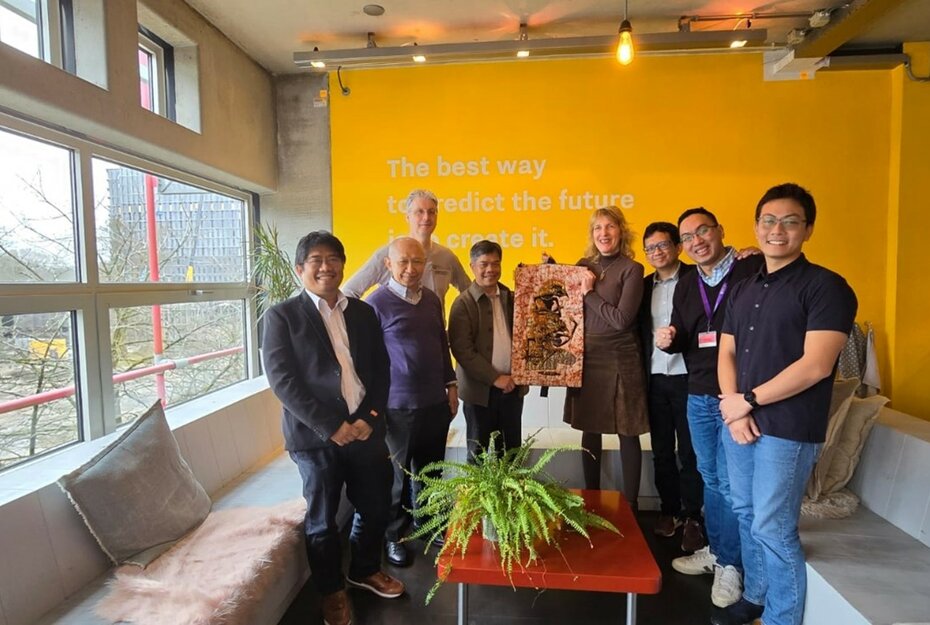Sharing best practices between the Netherlands and Indonesia
From 19-23 February 2024, a delegation from the Universitas Gadjah Mada-Indonesia visited the Netherlands and Germany to explore the possibilities of building international collaborations in energy research. Organizers Akmal Irfan Majid and Willie Prasidha explain the how and why of the visit, and what their former institution and EIRES could learn from each other.
Akmal Irfan Majid and Willie Prasidha are both PhD researchers at the Power & Flow group at the Department of Mechanical Engineering, and both originate from the same university in Indonesia. ‘We both worked at that university’s Center for Energy Studies and Department of Mechanical and Industrial Engineering before coming here,’ Majid says. While in the Netherlands, people typically start to look for more permanent positions after obtaining their PhD, in Indonesia, an academic career works a little different, both men explain.
‘After I obtained my Master of Engineering degree, I first had to secure a position as a researcher at the university,’ Majid says. ‘From that position, people could apply for one of the competitive scholarships funded by the Ministry of Education, Culture, Research, and Technology to pursue a PhD abroad.’ That is how, 1,5 years after one another, both of the enthusiastic PhD students came to Eindhoven.
‘The research here at TU/e on metal fuels is rather unique in the world’
‘TU/e is a dynamic university with a clear spirit of collaboration. The fact that everybody speaks English makes it also easier to work and live here if you’re not Dutch,’ Majid says. ‘The research here on metal fuels is rather unique in the world,’ Prasidha stresses. ‘Indonesia still operates many coal-based power plants. It would be a good idea if we could come up with viable, more sustainable alternatives to replace them with. Insights from metal oxide reduction are also beneficial to accelerate a more sustainable iron or steel production.’
Connecting networks
Since both researchers are constantly keen on enhancing collaboration among the nations to improve capacity development, they always have an eye out for opportunities to expand their networks in both countries and connect the two. So, when Majid’s former supervisor from the Universitas Gadjah Mada-Indonesia (one of the oldest and largest universities in Indonesia) contacted him with the request to connect him to TU/e and other Dutch universities, he did not hesitate and asked Prasidha to help him organize a visit.
In the week of February 19th, the Indonesian delegation, consisting of the Director, Vice-Director and two senior researchers of the Center for Energy Studies, visited several universities: TU/e, University of Groningen, TU Delft, and RWTH Aachen. In addition, they went to see some companies, like Gasunie and Resato Hydrogen Technology. During their first day, they visited TU/e, where they got an introduction to EIRES, visited The Gate, met with Thijs de Groot and saw the hydrogen setup, toured around DIFFER, discussed multiphase flow and metal fuels research with Niels Deen and Philip de Goey, and met with Lin-lin Chen, who is the Director of International Scientific Relations at TU/e.
'After the visit, the board plans to apply for a new funding initiative from the Indonesian government, aimed to build a partnership among Universitas Gadjah Mada-Indonesia and Dutch institutions, including TU/e, University of Groningen, and TU Delft, especially on the topics of energy transition.’
First agreements
Though these visits were primarily meant for the Indonesian researchers to get to know their Dutch counterparts in various organizations, already during the visit some first concrete agreements were made for further collaboration. Prasidha: ‘For example, an agreement was established between the Center for Energy Studies and the University of Groningen to initiate a “hydrogen valley” in Yogyakarta-Indonesia, and to organize a summer school on hydrogen technology there this August.’ Majid: ‘After the visit, the board of this Center plans to apply for a new funding initiative from the Indonesian government, aimed to build a partnership among Universitas Gadjah Mada-Indonesia and Dutch institutions, including TU/e, University of Groningen, and TU Delft, especially on the topics of energy transition.’
Both PhD researchers observe a lot of similarities between the Universitas Gadjah Mada’s Center for Energy Studies and EIRES. The topics are rather similar, but the approach is different, they say. ‘In Indonesia, the Center for Energy Studies works in a more multidisciplinary way. Engineers are collaborating with, for example, economists and legal experts to study problems in energy. Besides scientific publications, research is also typically translated into policy briefs to communicate the results into a language which policymakers can understand. EIRES, on the other hand, has a very nice focus on basic research, commercial valorization, and collaboration with industry. Here, there is a lot of support for entrepreneurial researchers in terms of helping with IP/patent issues and with setting up start-ups. It could be beneficial for both institutions to learn from each other’s best practices.’







